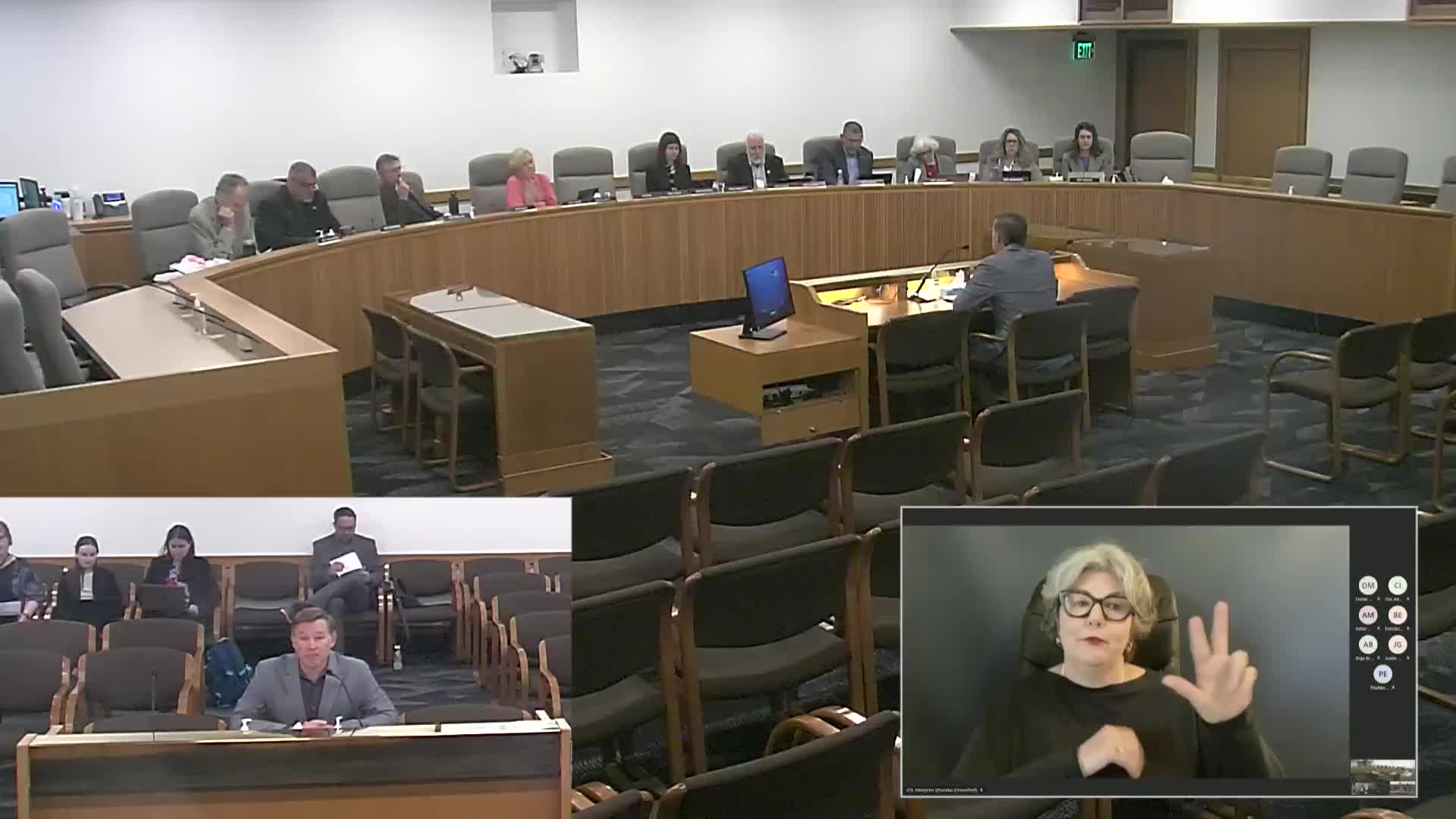Committee hears bill to let DEQ offer grants, principal forgiveness for failing septic systems
Get AI-powered insights, summaries, and transcripts
Subscribe
Summary
Senate Bill 830 would expand the Oregon Department of Environmental Quality(DEQ) on-site septic financial aid program to allow grants and principal forgiveness in addition to loans and to clarify that multi-unit residential housing is eligible; committee took testimony but no funding was approved.
The Senate Committee on Climate, Energy, and Environment held a public hearing on Senate Bill 830 on Oct. 12, 2025, to consider expanding the Oregon Department of Environmental Quality(DEQ) on-site septic financial aid program to allow grants and principal forgiveness as well as loans and to clarify eligibility for multi-unit residential housing.
Supporters and staff told the committee the change is designed to help low-income, elderly and fixed-income homeowners, and to ensure larger residential settings such as manufactured home parks, RV parks and apartments can qualify for assistance.
Ryan Huff, senior policy analyst for water-related programs at the DEQ, said SB 830 would add authorization for grants and other financial assistance tools that are not currently permitted under the agencys existing affordable loan program. "This aims to improve the options by which the state may offer financial assistance to rural Oregonians struggling to address the financial challenges associated with repairing or replacing on-site septic systems that have failed or are in disrepair," Huff said.
Huff outlined two existing efforts the bill would build on: a 2016 loan program administered through the community development financial institution Craft3 and a 2021 ARPA-funded on-site septic financial aid program. He told the committee Craft3has administered roughly $3,700,000 in state funds since 2016, benefiting 224 homeowners in 26 counties through below-market loans and flexible terms, and said Craft3 has leveraged private funds and charitable donations to expand lending capacity. He said the ARPA program received $15,000,000 and allowed a wider mix of tools, including grants, but that those ARPA funds have been obligated and the program is expected to be fully expended by early 2026.
"The grants are particularly important for assisting the most vulnerable low income, elderly, and fixed income homeowners who might not be able to participate in a loan program without additional incentive or subsidies," Huff said, adding that SB 830 itself does not appropriate new money; it only expands the programs authorities and policy flexibilities.
Members sought clarity about eligibility and funding. Representative Marsh asked whether the expansion is intended to include manufactured home parks; Huff said yes, the language is intended to make that explicit. Vice Chair Levy asked how the program would help people in her district; Huff said local partnerships similar to those used with ARPA funds would be considered depending on the scope of future funding and noted the Lower Umatilla Basin had been highlighted in the recently finalized Oregon Nitrate Reduction Plan.
When Vice Chair Gamba asked whether any funds are currently available to accept new applications, Huff replied no: the original loan program funds were expended by 2022 and the $15,000,000 in ARPA funds have been obligated. Huff said additional funding would need to be identified before new applications could be accepted. He also identified House Bill 2168 as a separate budget bill at the Ways and Means Committee that, as of his testimony, proposed $5,000,000 for the program.
Justin Green, executive director of Water for Eastern Oregon and a former DEQ water quality administrator, testified in support. "Replacing failing septic systems have been identified as a method of reducing groundwater nitrate concentrations in the basin," Green said, citing the Lower Umatilla Basin action plans and Oregons nitrate reduction planning. He said the DEQ-managed financial aid program had provided clear benefits for human health and groundwater protection.
Committee members pressed for more data on how much nitrates in the Lower Umatilla Basin are attributable to septic systems; Green pointed to a pie chart in the Lower Umatilla Basin Groundwater Management Area second action plan but did not give a specific percentage and said he would follow up.
The hearing record shows SB 830 as a policy bill that would broaden allowable financial-assistance mechanisms but does not by itself provide appropriation authority. Committee members closed testimony on SB 830 without taking a committee vote; staff and witnesses indicated additional funding would be required before the expanded authorities could be used to fund new repairs or replacements.
The committee closed the SB 830 hearing and proceeded to a separate hearing on Senate Bill 551.
